by Frank Turk
UPDATED 25 Feb 2012
Yes: hello. Before you read this further, this post is, right now, the #2 all-time viewed post in the history of this blog. It accounts for 1% of all traffic to this blog. And, methinks, a lot of people miss about 2/3rds of what went into the original post because it misses the detailed analysis of the original interview which posted the same day, but gets missed when someone links through to this letter only.
For the sake of that being remedied, I offer a link to the analysis right here. Don't miss it for the sake of your our righteous indignation.
-- Frank Turk
Dear Derek Webb --
I started my (meager and non-profit) blogging career with
an open letter to you about 6 years ago, and it's funny how that has come full circle as you stay on your quest to be come an artist (we'll come back to that) and I stay on my quest to, um, blog.
Over at HuffPo,
Chris Stedman's interview of you has made some waves in the week after Christmas. It's really cool that, unlike the rest of us, you can get interviews with secularists and directors of inter-religious dialogue -- and I mean that sincerely even though I know it sounds sarcastic. If more people who were actually Christians could get interviewed by Chris Stedman, Chris himself would probably be better for it -- and his readers would at least be disabused by the stereotype of "Christianity" with which they are abused today.
I have to grant you something: you are right about the problem the church has in addressing the "gay" issue. I
blogged about that a few years ago myself, refer to that post frequently as the topic comes up and further notes are required, and I commend that to you for context of my note to you today.
There are three things which bothered me about your talk with Mr. Stedman that I want to pass on as we approach the New Year, and I offer them to you in no particular order:
1. The Gospel
What is the Gospel, Derek? (please forgive the faux familiarity; I address you as one somewhat-public person to another) You seem to have summed it up to Mr. Stedman as, "Jesus says we are to be preemptive about how we love." Yet this is not at all how Jesus prepares people for the Gospel, nor what he seems to put at the first place for the reason God sent him, the Son, into the world.
I know someplace, somehow, you "get" this: the Son of Man was not sent to be served, but to serve, and to lay down his life as a ransom for many. He came to suffer much at the hands of the leaders of Israel and to be put to death. And he did this not as a
moral example but as a sacrifice -- as the lamb of God who takes away the sins of the world.
Yet your interview with HuffPo doesn't really mention that -- and maybe that's Mr. Stedman's editorial hand showing. You instead leapfrog that in this interview and go directly to "love". But this is how we know what Love is: seeing that God did something
for us when we were
unworthy of it. Christ died for
sinners and not merely for morally-neutral people -- or worse, for people who are just moral equivalents of each other who can't see either the log in their own eye or the mote in his brother's eye.
The key note of the Gospel, Derek, is
the need for it. I am well-known in this little backwater of the internet for saying that any random sinner is "
just like me" -- but can I point out a difference between your approach and mine? Your approach is to say, "I'm not any worse than the least of these," and my approach is to say, "I am no better, and maybe I am worse."
The
nuance there is important. From the perspective you have delivered to the readers of HuffPo, it's just a "come as you are" thing to say that men are sinful. Them's the breaks, as they say. It soft-soaps the problem of sin significantly into something you put this way:
"One of the hallmarks of following Jesus is to pursue and love people who are different than we are and have different beliefs than we do, and to live our lives loving, understanding and coming into common ground with those people."
The problem with that is that Jesus didn't die to establish common ground, Derek: Jesus died because the wages of sin is death, and that's the common ground of all men of all times and all places. I may actually be worse-off than the homosexual, morally: my sins may be more wide-spread and more deeply-rooted (which is an interesting question, given your position here; again: more on that in a second). But what that
does not do is mitigate the fact that the homosexual's sin is actually an offense to God from which he must
repent, and not merely recognize as a different expression of self.
2. the Church
To that end, Jesus died to make the believers into the Church, right? Jesus didn't die so that we can make a moral equation up which makes Islam and Hinduism and Judaism and then the social/religious agnostics who come 'round about Him as "believers" into a happy mixed family. Jesus died so that the believers can be called out from death into life, and called out from the world to the household of God, and called out of
sin and into
salvation.
Readers of this blog know that I am not a perfectionist -- I don't believe that there are any Christians who are perfect morally, least of all me personally. In fact, I think one of the greatest sins in the American Christian life is the inability of so-called theologically-conservative Christians to live in community with other believers. There is a call to repentance needed
there which has not yet been sounded or even rightly-framed which we English-speakers have to face up to. It smashes our idols of individuality and intellectual pride. That matter is for another day.
But that said, Christ died to call out the Church. This is an unquestionable fact of the New Testament; it's the key-note point of Paul's first letter to the Corinthians, and also the "book ends" of Paul's letter to the Romans. Somehow, if Christ died for us, we are a new people set apart from the world and it's
fallenness. Right? Colossians 3? So when we make the confession that we
are sinners, we are also making the confession that we
ought not to be sinners. Making allowance for the sins of others so that we can "love them" is unloving because it is spiritually deadly. It completely squashes the actual Gospel in place of a new kind of legalism. Rather than seeking to find out all the ways in which we ought "not to do," we are in fact seeking out all the ways we can allow all the things we ought not to do. It's a legalism of tolerance -- which you exchange in your interview into a legalism of love. It's not love, you might say, if it doesn't include those who mutilate themselves to justify their sexual urges. It's not love, you might say, if we can't bless the sexual union of two people who are sexually identical rather than sexually compatible. It's the legalism of permissiveness, which is merely license raised to a moral imperative.
The Church cannot say such things. When it does -- and I submit to you that
the conservative church does this exactly today regarding marriage and sexuality -- it is gone far afield. To have it go far into another false field for the sake of balance (which, as I take it, is your complaint) is not prophetic or artistic: it is blasphemy, and anti-Gospel.
3. The Artist
Which brings me to my final comment. Personally, I grew up in a liberal-arts environment. Then I "got saved" and spent 20 years as a Christian. I have found that there is a singular refuge for people who do not want to be held morally and philosophically culpable for the trash they flatulently expel into the common conversation. In Christian circles, it's the "prophet"; in academic circles, it's "the artist".
Back in the "old days" before you started filing complaints against the local church and Christians in general, you didn't couch yourself behind the conceit of being "an Artist". But today, that's your trip. Are you really more-qualified to make moral, political and social pronouncements than anyone else -- than pastors and qualified teacher of the Bible, for example -- now that you are "an artist"? Is it really at all reasonable let alone generous or spiritually-mature to denigrate pastors as people who don't have enough time to get spiritually informed except through CNN and blogs? I think it's a dodge you can cleverly use to escape scrutiny, and you should frankly know better. You're not some kid floating through college on his father's hard-earned dime; you're not some flattered entertainer who lives in a vacuum protected by publicists and agents and sycophants (I hope). You're in some way a self-made man who has been there, done that -- which makes your daffy diatribes against conservative Christianity, and the disguise of being an "artist", all the more unbelievable.
To say, as you have said here, that your pondering these issues trumps other views because you are an "artist" is simply adolescent. If your moral pronouncement trumps, for example, John Piper (not an artist), what if Charlton Heston says you're wrong? His artistic cred trumps yours for sure: how do you deal with it? And what if Ian McKellen then comes out and proffers yet another moral pronouncement -- does his cred trump Heston? What exactly will we do when the artist community unsurprisingly cannot speak with one voice and cannot come to a moral consensus? What will us poor non-artists do if CNN or FOX does not clear it up for us?

The answer, of course, is to put the artist in his place -- subject to God's revelation. That's the Christian answer, anyway -- settle matters of faith and practice by what God hath said -- and that, done by men of good faith who are elders and leaders in the church. But the way you have, over time, read the Bible, has become shallow and ambiguous -- which is the hallmark of pretentiousness, not artistic depth. To see Jesus as only a lover of the sinful and not a judge or even decent moral counsellor is to misread all of the book of John and all of Revelation and all of Paul's statements which begin "therefore" in the New Testament.
May we all suffer fewer artists of this sort in the future, and may you repent of it as soon as possible.
We all know you want to be a lion -- we all want to pass as cats. You want to be a big, big star; you want to be someone to believe. You want to be Bob Dylan. The problem is that you're not. You're a
kid fellow from Texas who has, over 20 years, convinced himself that there is no Old Testament substantiating the New Testament; that Jesus does not
fulfill that
law so that in his death those who repent and believe are made a people
like him. What we therefore ought to be is both enemies of sin and friends of sinners -- but I think you have missed this someplace, publicly and intentionally. My offer to you is to come back to this, which is the Christian faith and not some romantic or secularized stereotype of the actual faith.
While I have been harsh here, I hope this letter finds you well, and in the good graces of God, and with a heart inclined toward him and inclined to repent. You have said that you refuse no invitations for interviews, and I post this as an open invitation to do two things inclusively here together: [1] to post your [unedited] open reply to this letter in this space at your convenience, and [2] to also record a 60-minute interview with me on this subject which would be available here unedited on this subject to correct the record as necessary, correct my view of the interview with Stedman, and to dialog on the question of the church being in the world, on mission to lost people, but not of the world.
You can tweet me @Frank_Turk, or e-mail at frank at i-t-u-r-k dot com.
Awesome Update:
BEFORE YOU POST A COMMENT (and I do mean you personally), ask yourself this question: "Self, if my response to Frank Turk is that he should have first called Derek and had coffee with him to do the Biblical thing and not make this all like this, and I'm going to set him straight, why am I posting a comment on his blog rather than calling him? Am I just like Frank, or am I really following Jesus?"
If you can answer that question in a way that doesn't embarrass yourself, lay on, MacDuff.
--
The Neighborhood Bully
Awesome Update #2:
After closing the comments and reflecting on this post, the one very obvious and glaring problem with the discussion has been the actual lack of actual discussion. For example, with the panoply of people pelting me for not contacting Derek directly to make nice with him privately over his public disapprobation (notice I got it right this time) of the church and its moral judgment, only two people have bothered to send me an e-mail about the subject to take their points off-line. TWO. And I bring it up only because
I put my e-mail address and Twitter ID in the post. Finding me would have been as hard as blinking.
This describes the kind of objection that concern is -- because it apparently doesn't apply to the people who offer it. It certainly didn't apply to Derek who, rather than respond here, or respond with an e-mail, or even respond with a quick note with any clarifiers, posted drive-by tweets for three days about nameless bloggers and told people via twitter that
I was specifically a body part of inglorious use.
File that with this open letter, and keep it between the ditches.
--
The Neighborhood Bully




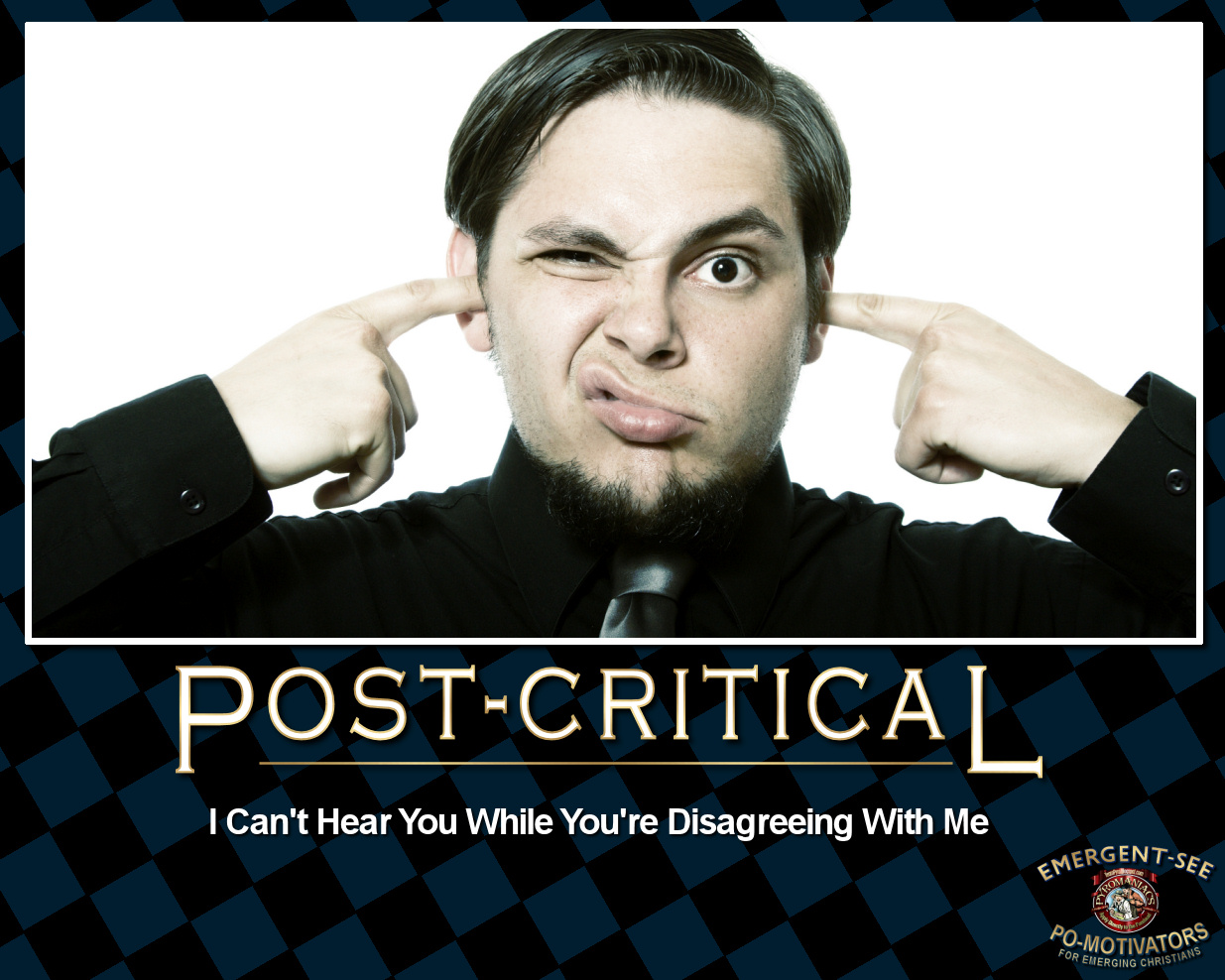
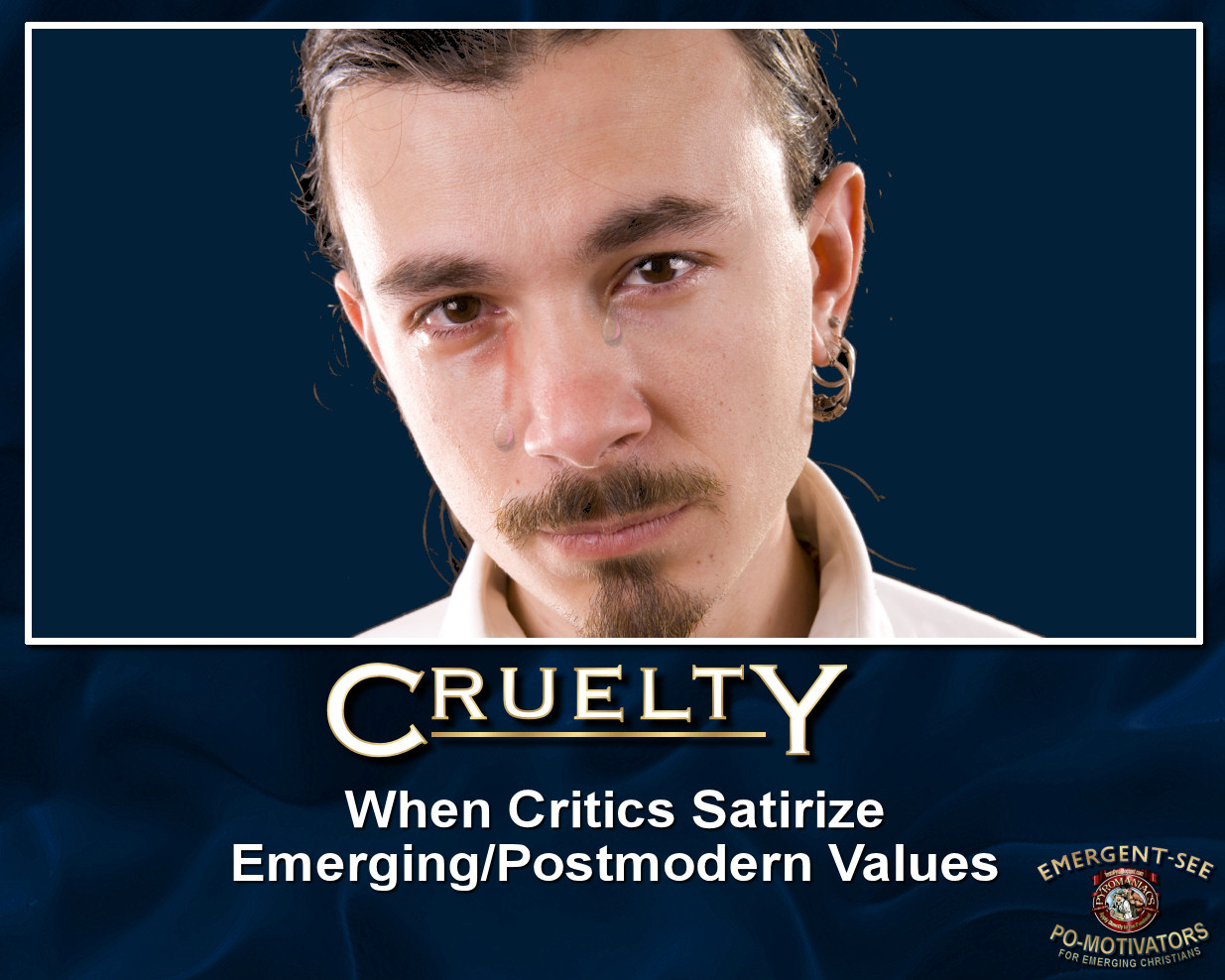
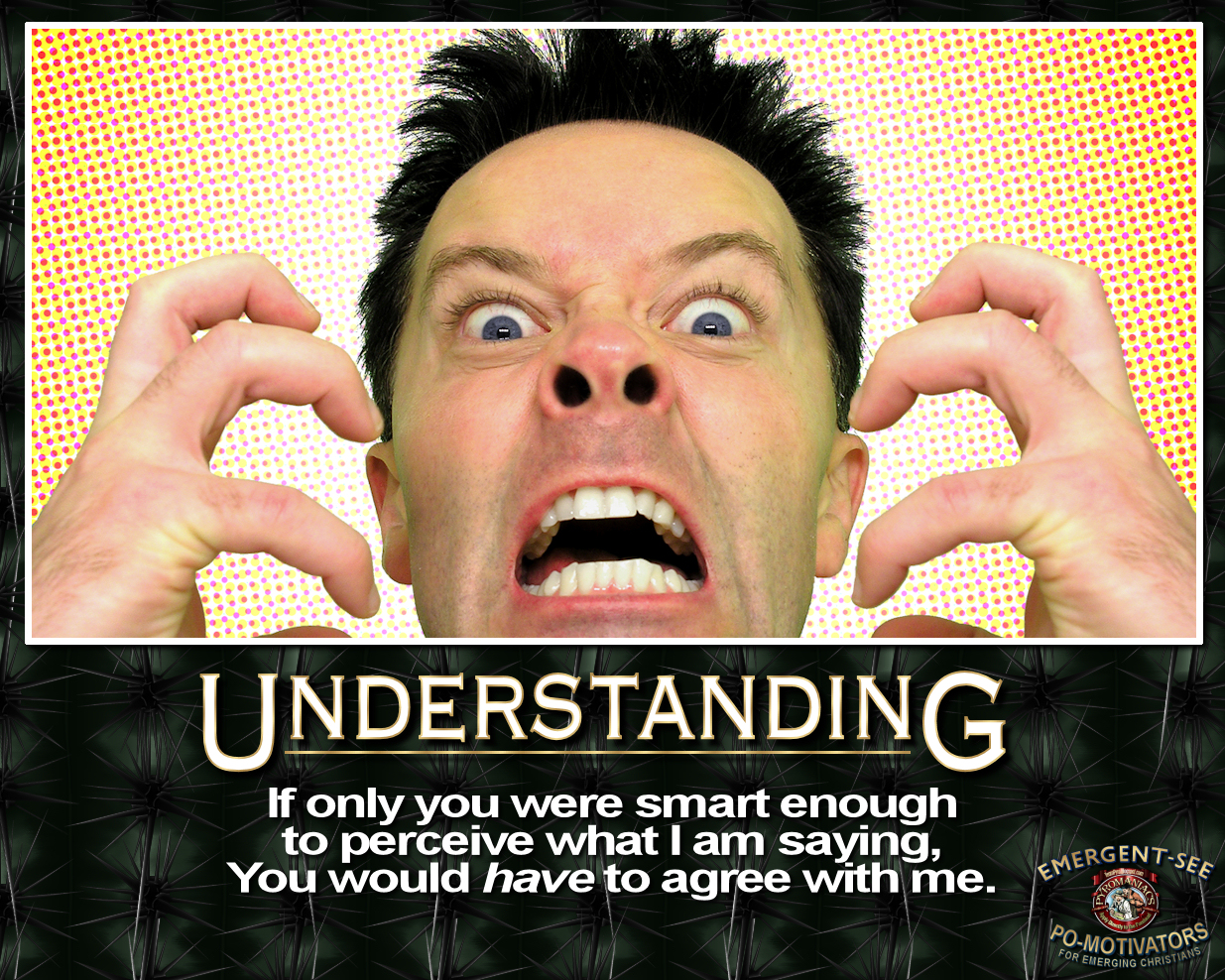

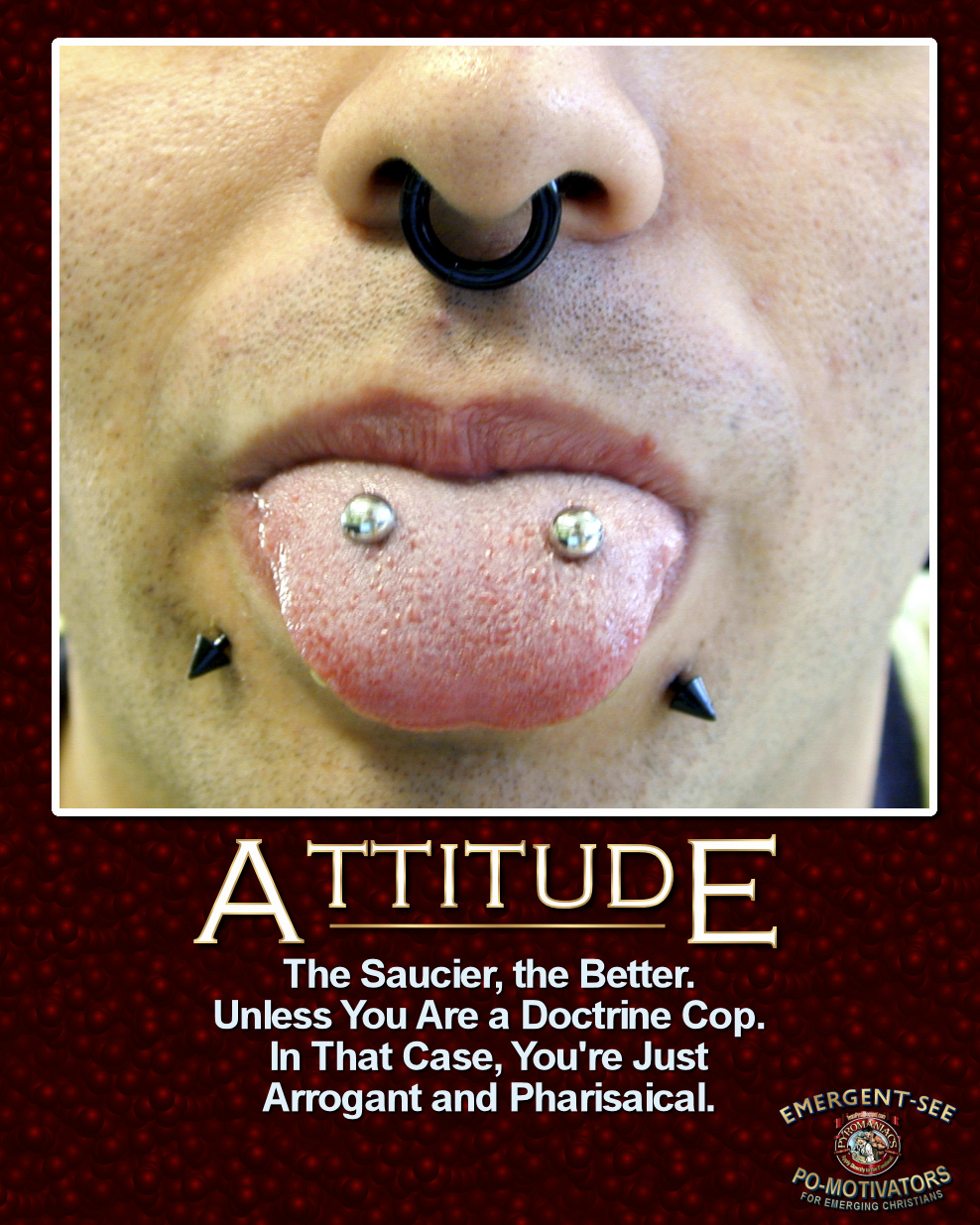
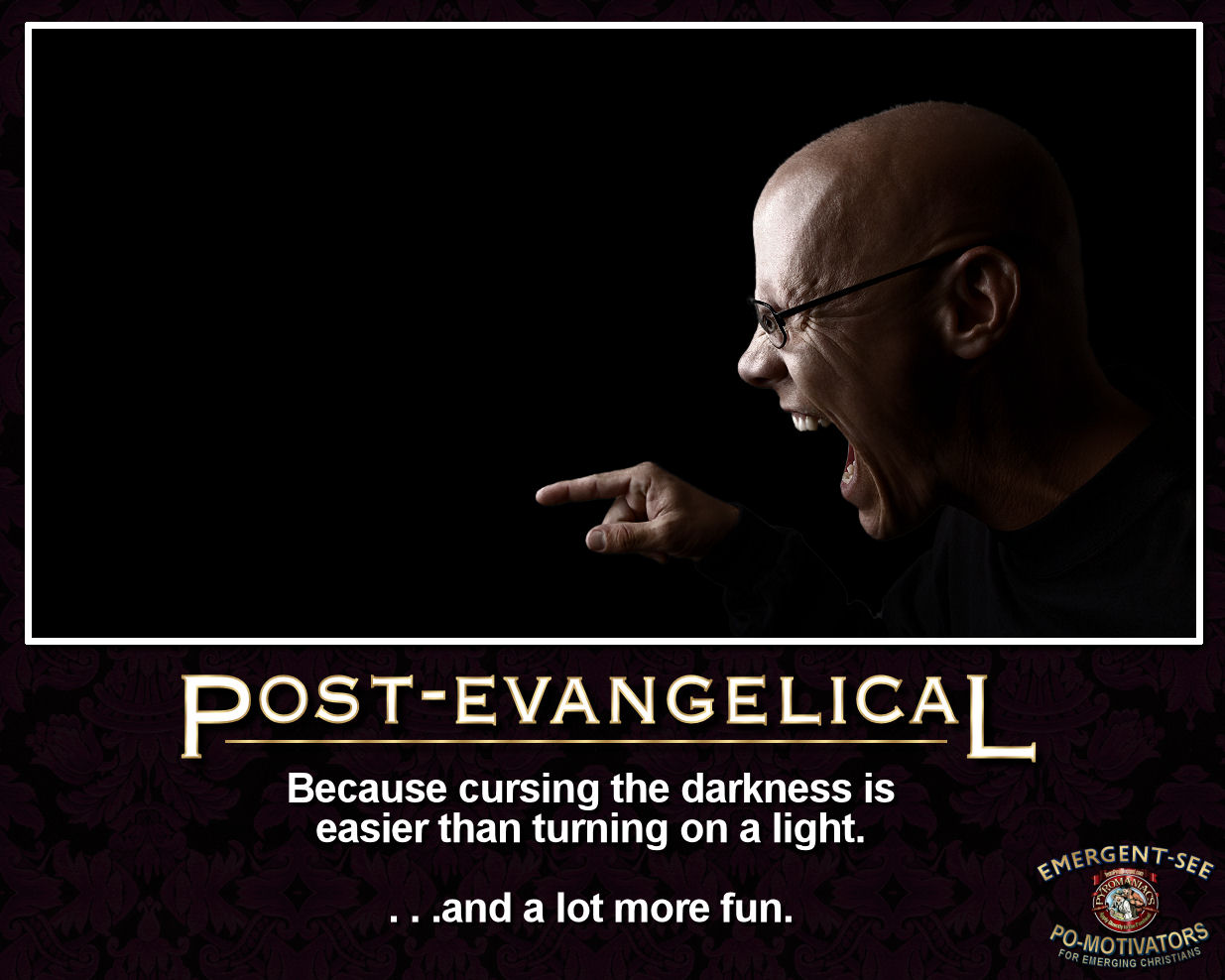





 The answer, of course, is to put the artist in his place -- subject to God's revelation. That's the Christian answer, anyway -- settle matters of faith and practice by what God hath said -- and that, done by men of good faith who are elders and leaders in the church. But the way you have, over time, read the Bible, has become shallow and ambiguous -- which is the hallmark of pretentiousness, not artistic depth. To see Jesus as only a lover of the sinful and not a judge or even decent moral counsellor is to misread all of the book of John and all of Revelation and all of Paul's statements which begin "therefore" in the New Testament.
The answer, of course, is to put the artist in his place -- subject to God's revelation. That's the Christian answer, anyway -- settle matters of faith and practice by what God hath said -- and that, done by men of good faith who are elders and leaders in the church. But the way you have, over time, read the Bible, has become shallow and ambiguous -- which is the hallmark of pretentiousness, not artistic depth. To see Jesus as only a lover of the sinful and not a judge or even decent moral counsellor is to misread all of the book of John and all of Revelation and all of Paul's statements which begin "therefore" in the New Testament.
 Most readers will have already read my open letter to Derek Webb, but this post is actually being published prior to the open letter. So I offer it as a post-script or epilogue or prologue (depending on when you read it) based on a phone call I had this week. I had a phone-chat with a reasonably-well-known SBC blogger (name obscured to give him the freedom to be in or out) after I tweeted about Derek's interview (long story, but he called because I didn't want to have a tweet war about the subject), and before the Ozarks canned my cell signal he asked me to at least deal with the interview and what it actually said -- not what I thought it implied.
Most readers will have already read my open letter to Derek Webb, but this post is actually being published prior to the open letter. So I offer it as a post-script or epilogue or prologue (depending on when you read it) based on a phone call I had this week. I had a phone-chat with a reasonably-well-known SBC blogger (name obscured to give him the freedom to be in or out) after I tweeted about Derek's interview (long story, but he called because I didn't want to have a tweet war about the subject), and before the Ozarks canned my cell signal he asked me to at least deal with the interview and what it actually said -- not what I thought it implied.

 friend gave me a
friend gave me a 

 hrist did not merely speak the truth, but he was truth. Had he been truth embodied in an angelic form, he had possessed small power over our hearts and lives; but perfect truth in a human form has royal power over renewed humanity. Truth embodied in flesh and blood has power over flesh and blood. Hence, for this purpose was he born.
hrist did not merely speak the truth, but he was truth. Had he been truth embodied in an angelic form, he had possessed small power over our hearts and lives; but perfect truth in a human form has royal power over renewed humanity. Truth embodied in flesh and blood has power over flesh and blood. Hence, for this purpose was he born.










 his is one of the most basic truths of Christianity: Salvation is not a work the sinner does for God; it is a work God does for the sinner. Ephesians 2:10: "We are his workmanship."
his is one of the most basic truths of Christianity: Salvation is not a work the sinner does for God; it is a work God does for the sinner. Ephesians 2:10: "We are his workmanship." The
The  NE of the most serious calamities which can befall a church is to have her own ministers teaching heresy: yet this is no new thing, it has happened from the beginning.
NE of the most serious calamities which can befall a church is to have her own ministers teaching heresy: yet this is no new thing, it has happened from the beginning.

 'm not fond of the expression "eternal security" because of the way the doctrine is abused by antinomians and people who think it's possible to own Jesus as Savior without bowing to Him as Lord. I prefer to speak of the perseverance of the saints, because that expression better captures the gist of what the doctrine entails.
'm not fond of the expression "eternal security" because of the way the doctrine is abused by antinomians and people who think it's possible to own Jesus as Savior without bowing to Him as Lord. I prefer to speak of the perseverance of the saints, because that expression better captures the gist of what the doctrine entails.

 Look: that's the ultimate promise YHVH makes to Israel -- when the savior is born, he will be "Emmanuel - God with us." And the Angels point out that the sign to the Shepherds is that this child is born of no account at all -- above no one in the world. This wouldn't be so true if Jesus had been born in Solomon's courts -- because as the Prince of the nation, he would be above so many and unreachable by them.
Look: that's the ultimate promise YHVH makes to Israel -- when the savior is born, he will be "Emmanuel - God with us." And the Angels point out that the sign to the Shepherds is that this child is born of no account at all -- above no one in the world. This wouldn't be so true if Jesus had been born in Solomon's courts -- because as the Prince of the nation, he would be above so many and unreachable by them.








